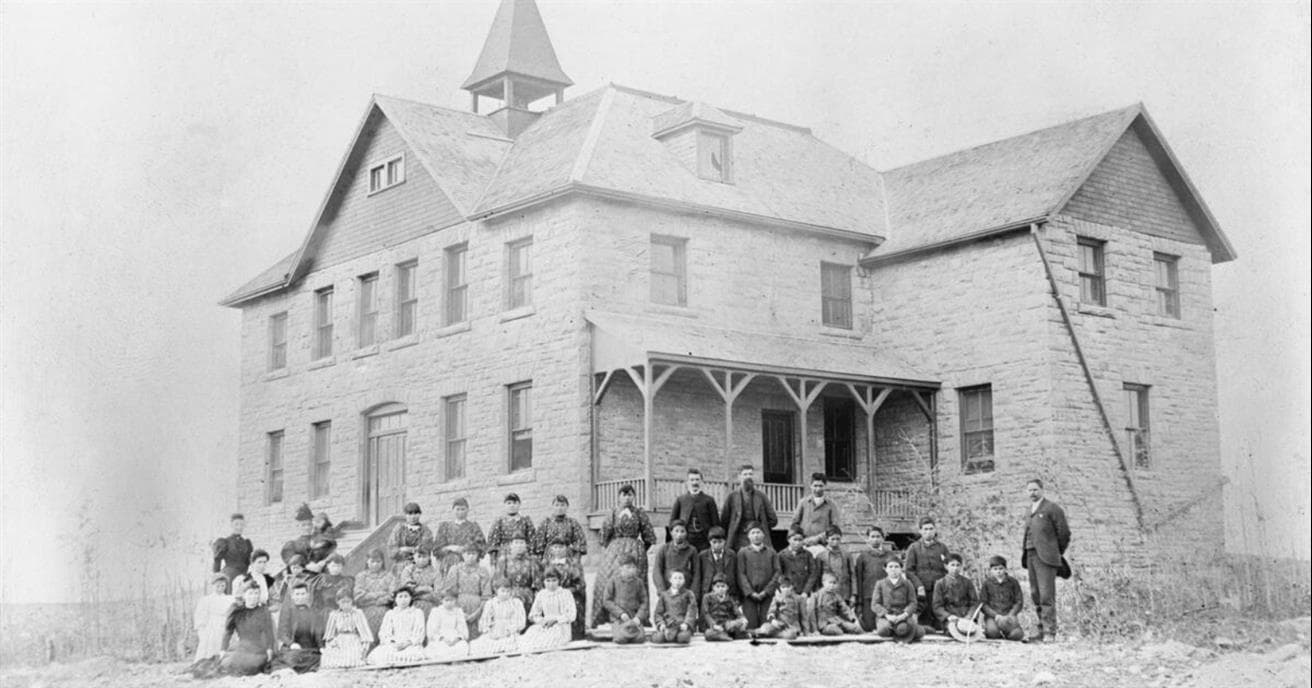There’s a somber tone to Ed Ma, Q.C.’s typical cheerful demeanor as he steels himself to talk about the many residential school stories he’s heard over the years.
Ed, Senior Advisor, Energy & Climate Change Policy at Suncor, is a lawyer by trade. He still practices and is on the board of directors for Pro Bono Law Alberta, which has been supported by both Suncor and the Suncor Energy Foundation. But before joining Suncor, Ed represented residential school survivors in their fight for compensation and justice.
“I must have heard about a hundred stories,” explains Ed. “Through that work, I learned of a different side of Canadian history that I wasn’t aware of. The survivors I worked with suffered a tremendous amount. What they experienced isn’t something anyone should go through.”
The work was never easy, Ed had to emotionally distanced himself from his clients’ childhood stories of trauma, abuse and neglect to represent them fairly. But when he started meeting survivors his age, Ed needed more than emotional distance and turned to an Elder for guidance.
“I asked him for a smudge, to cleanse me, and for prayer” says Ed. “After that, I thought ‘I’m good and ready; I can listen to a hundred more stories.’ The work is heavy, but very important.”
Like many Canadians, Ed learned very little about Canada’s true history with Indigenous Peoples in school. He didn’t know much about Indian residential schools or the Sixties Scoop, Indian hospitals or any of the systemic racism and horrors that took place while he was still a student himself.
“Out of a stroke of luck, I was born into a different family. It could have been me sitting in that penitentiary where some of my clients were,” says Ed of his work with the survivors. “Their stories and learning about the past made me a better Canadian. It’s really upon all of us to learn the truth and show compassion.”
A historic day
The country’s first National Day for Truth and Reconciliation, which is Sept. 30—also known as Orange Shirt Day, was passed by the federal government in June 2021 to recognize the day as a federal statutory holiday.
Establishing the day responds to the Truth and Reconciliation Commission report’s Call to Action number 80 “to honour survivors, their families, and communities, and ensure that public commemoration of the history and legacy of residential schools remains a vital component of the reconciliation process.”
“The horrors of the residential schools are very real for many people in the country,” says Martha Hall Findlay, Chief Sustainability Officer. “There are people within this company, in the communities where we live and across the whole country who are survivors of that system or are impacted by intergenerational trauma. For us to collectively come together on Sept. 30 to reflect on and learn about this part of our history is vital to healing and reconciliation.”
In 2021, Suncor, as part of the Journey of Reconciliation, will be using Sept. 30 as a day of reflection and learning. Leading up to the day there were online events and cultural experiences hosted by both the executive leadership team and Suncor’s Indigenous employee network, Journeys, including an all-employee webcast to discuss and learn about residential schools and a sharing circle led by Indigenous employees on Sept. 30.
While many will be reflecting on knowledge that is relatively new and feels somewhat distant, Ed will be doing what he does often: thinking about his past clients. “I can remember every single one of them and I wonder about them often.”
“Reconciliation takes passionate people to help elevate understanding and learning, so we can move forward as Canadians from a terrible legacy. My advice to anyone on a reconciliation journey is to resist the urge to fix things. Instead, muster-up the will to stop and listen, to seek and to understand before taking action.”
Those needing support can access the National Residential School Crisis Line: 1-866-325-4419
Primary image credit: Red Deer Indian Industrial School, Red Deer, Alberta.”, (CU174982). Courtesy of Libraries and Cultural Resources Digital Collections, University of Calgary.



